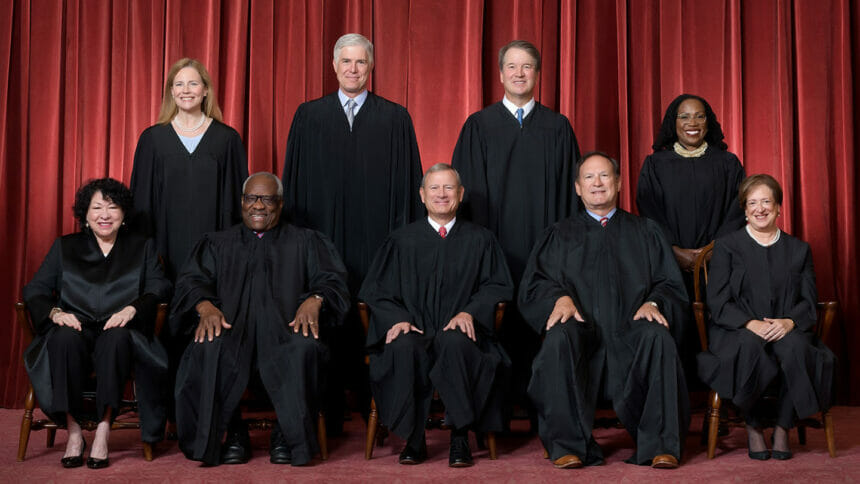
The fate of the looming federal staffing mandate for nursing homes may hinge on the experiences of a fishing company.
The US Supreme Court announced Monday that it would hear a case that could determine the scope of federal agency’s authority beyond what is written in congressional statutes. The case involves a herring fishing company’s challenge of a requirement from the National Marine Fisheries Service to allow federal observers onboard and to compensate them for their time. The fishing company sued, claiming that rule cuts into their profits and is outside the scope of the service’s authority.
Legal observers and business sectors are closely watching the case unfold since it could overturn what’s known as the Chevron Doctrine. In existence since 1984, it is one of the most frequently cited legal precedents that gives broad authority to government agencies to interpret how to apply laws. But for decades, conservatives — particularly some on the Supreme Court and in Congress — have said the doctrine permits regulatory overreach. Others, meanwhile, have argued that agencies need wide latitude — more agency autonomy — to implement often ambiguous laws.
“Congress isn’t the best at comprehensively addressing all the policy facets an agency might,” Brendan Williams, president and CEO of the New Hampshire Health Care Association, told McKnight’s Long-Term Care News on Tuesday.
In the early days of the COVID-19 pandemic, the federal government announced a number of emergency policies meant to stem the contagion. Those policies are set to expire next week (May 11) when the public health emergency ends. The White House announced this week that it plans to end the vaccine mandate for more than 17 million healthcare workers.
“While vaccination remains one of the most important tools in advancing the health and safety of employees and promoting the efficiency of workplaces, we are now in a different phase of our response when these measures are no longer necessary,” the White House said in its announcement.
Last year, the Supreme Court took differing positions on vaccine mandates — upholding one for workers at facilities receiving Medicare and Medicaid dollars and shooting down another for all workplaces regulated by OSHA. Nursing homes have been largely successful in vaccinating employees with CMS reporting that 85.8% of employees nationwide had received at least one vaccine shot by the week of April 16.
Williams said in a column published by McKnight’s in December that overturning the Chevron Doctrine would put the expected staffing mandate into regulatory jeopardy. He wrote that, had Congress “intended something so consequential, it would have plainly said so in statute.”
CMS’ restrictive coverage of the Alzheimer’s drug Aduhelm also could be at-risk if the Chevron Doctrine is overturned, according to an Inside Health Policy report. It noted that the Supreme Court’s intention to hear the fishing company’s case does not mean that it will be overturned — just that enough justices are willing to listen to arguments on it.
“CMS has enjoyed largely unfettered discretion relative to Medicaid, imposing expectations in arguably extralegal ways, while ignoring plain statutory language, including the requirement state Medicaid payments be consistent with quality care and ensure access.,” Williams said. “It’s possible its wings might be clipped along with other agencies.”
The fishing company case at issue is Loper Bright Enterprises, et al. v. Raimondo, et al. The Supreme Court will hear arguments on it, and possibly by indirect association, the staffing mandate, in the fall.





